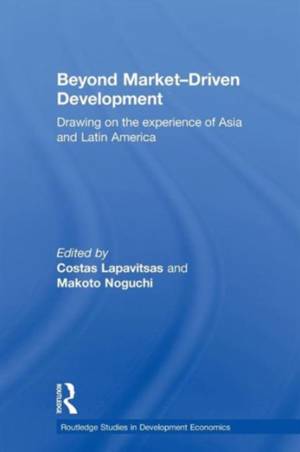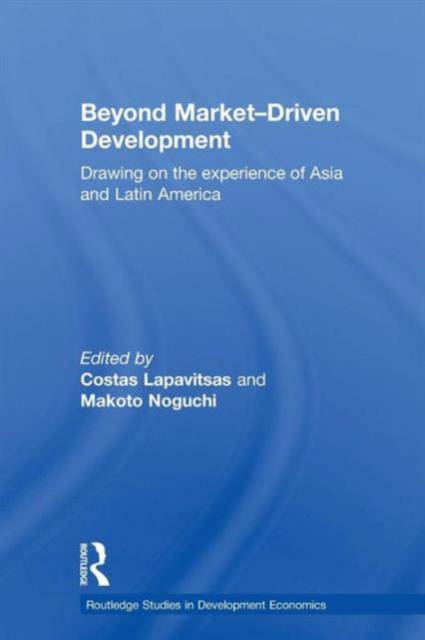
- Retrait gratuit dans votre magasin Club
- 7.000.000 titres dans notre catalogue
- Payer en toute sécurité
- Toujours un magasin près de chez vous
- Retrait gratuit dans votre magasin Club
- 7.000.0000 titres dans notre catalogue
- Payer en toute sécurité
- Toujours un magasin près de chez vous
Beyond Market-Driven Development
Drawing on the Experience of Asia and Latin America
Description
Because their economies were regulated, their financial systems 'repressed' and their states interventionist, for many years the countries of East Asia challenged the Washington consensus, offering an alternative development paradigm. However, in the 1990's, Asian capitalism was disrupted following Japan's stagnation and the financial crisis of 1997-98.
Treading the unexplored theoretical terrain created by the simultaneous decline of the Washington Consensus and Asian developmentalism, this revealing book analyzes the comparative political economy of East Asia and Latin America. Divided into four key sections, it covers:
- Theoretical Framework
- Results of Globalization
- Converging and Diverging of Paths of Economic Development
- Finance and Regionalism.
Through the juxtaposition of countries in East Asia and Latin America, leading academics analyze the impact of government intervention, institutional malfunction, social transformation and financial change as well as conflict and power on economic development. This book will prove to be invaluable to students and academics of development economics.
Spécifications
Parties prenantes
- Editeur:
Contenu
- Nombre de pages :
- 232
- Langue:
- Anglais
- Collection :
- Tome:
- n° 43
Caractéristiques
- EAN:
- 9780415646062
- Date de parution :
- 19-09-12
- Format:
- Livre broché
- Format numérique:
- Trade paperback (VS)
- Dimensions :
- 150 mm x 226 mm
- Poids :
- 249 g

Les avis
Nous publions uniquement les avis qui respectent les conditions requises. Consultez nos conditions pour les avis.





